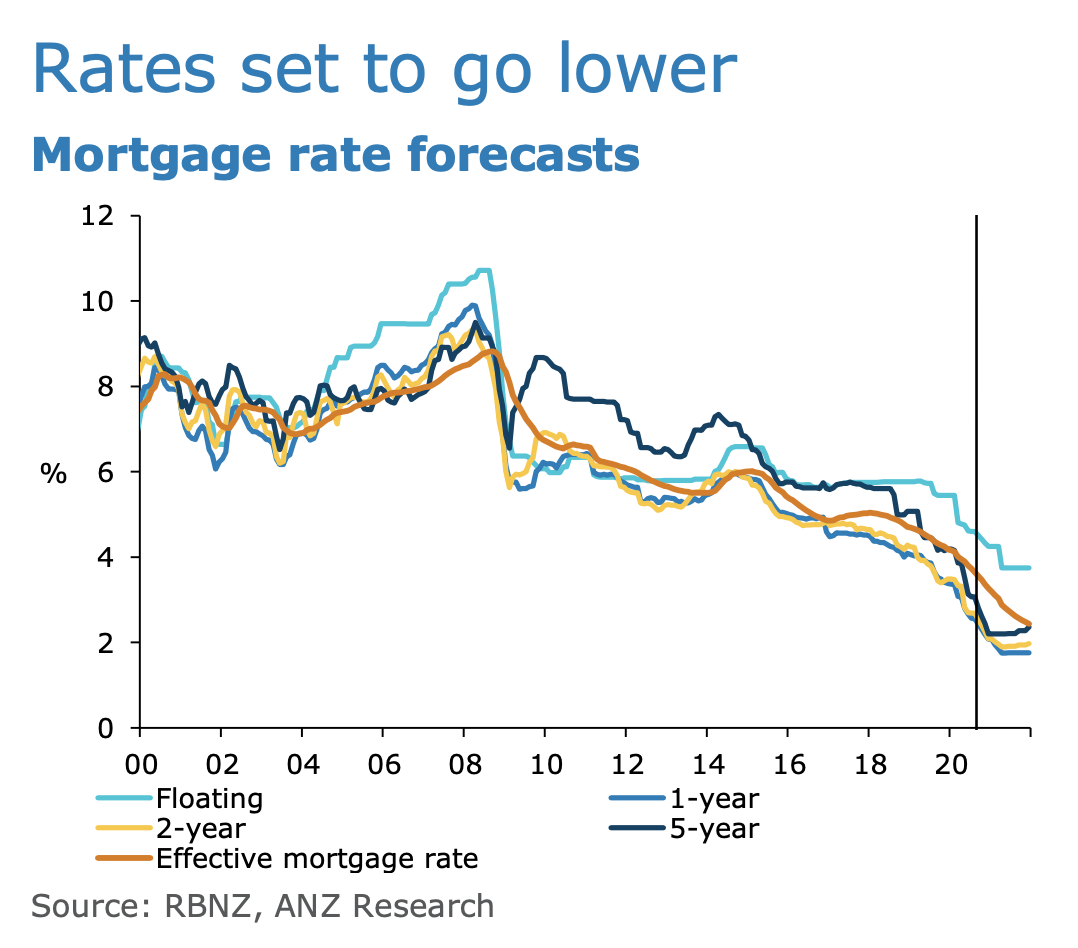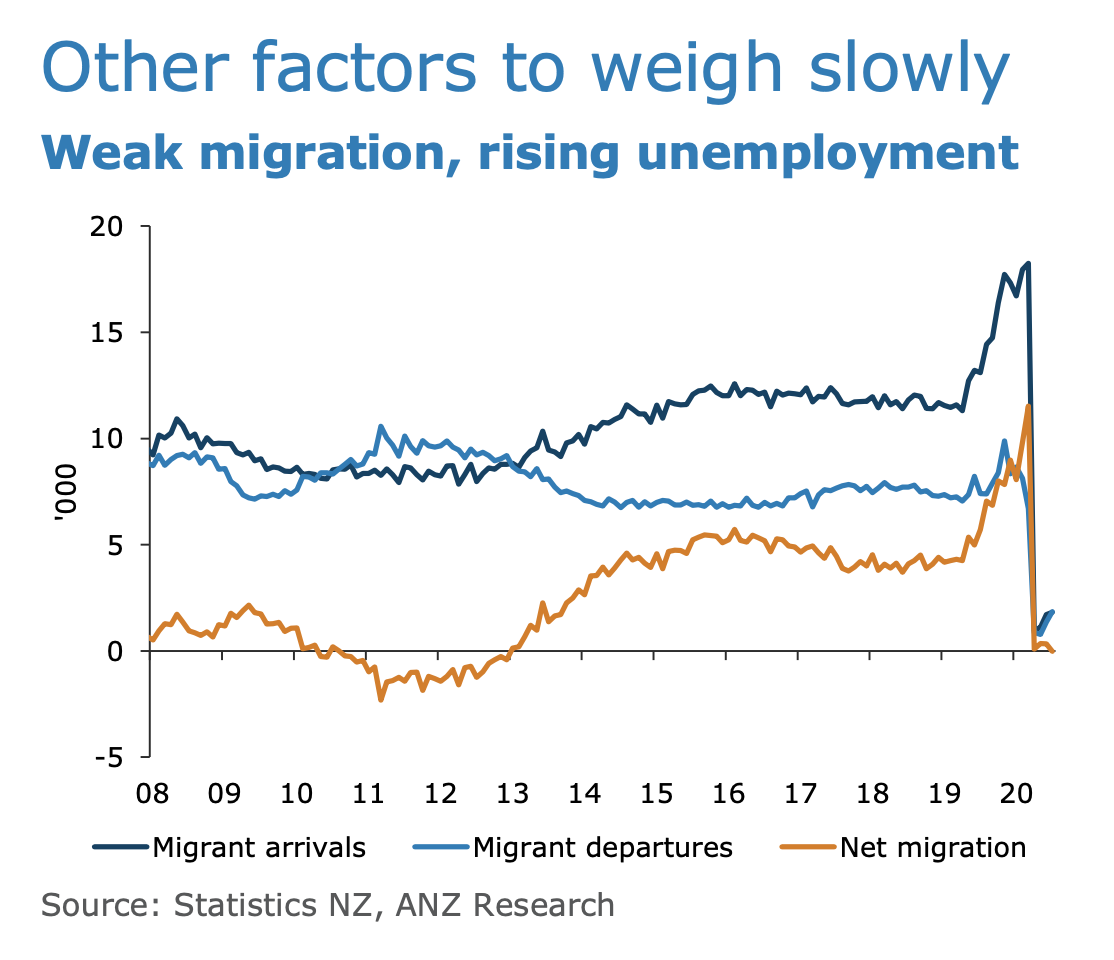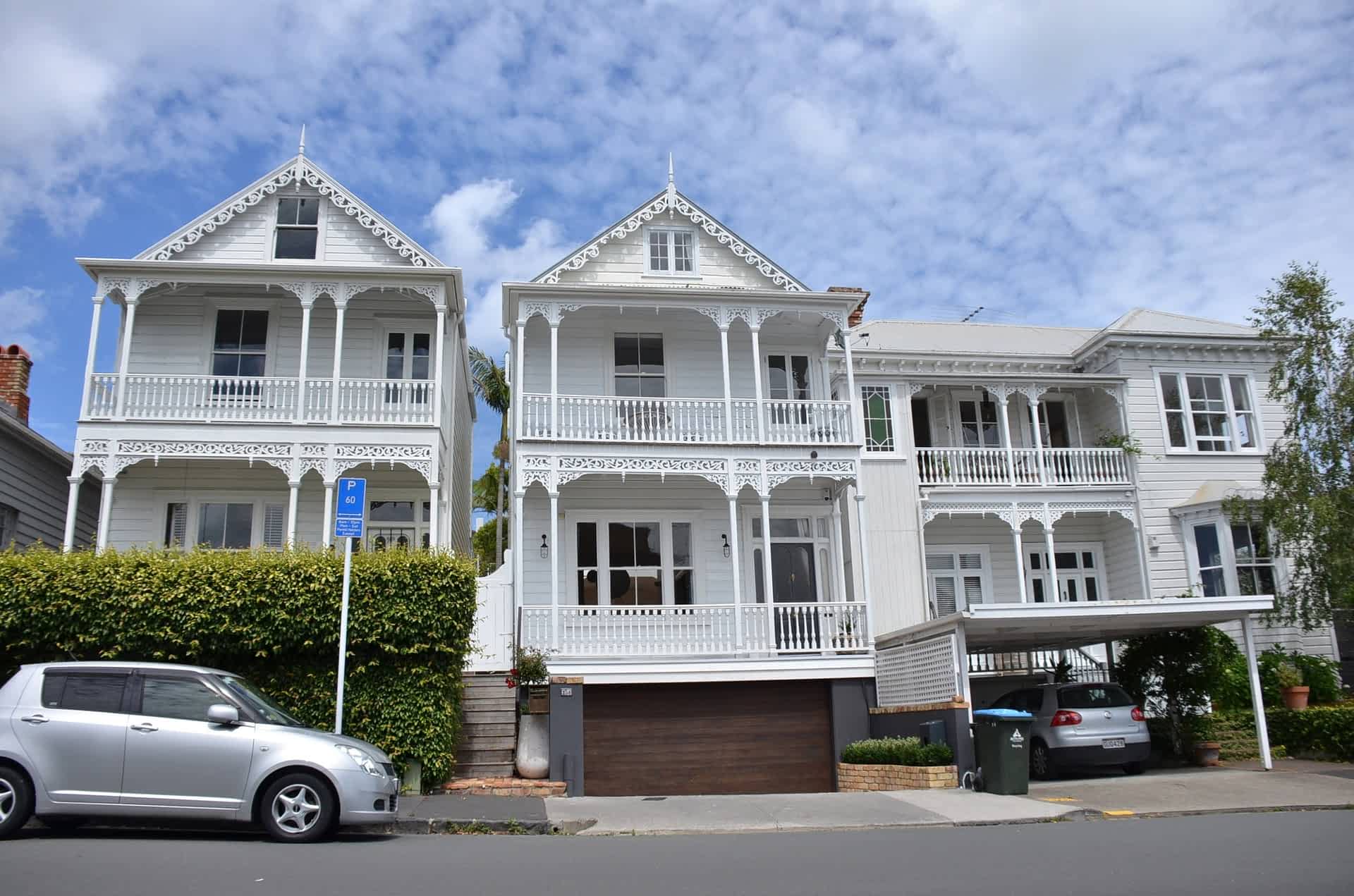
(6-minute read)
Auckland house prices doubled every 10 years since 1993. This year, REINZ Residential Property Stats found Auckland values were up by 16% compared to 2019 due to strong buyer demand– good news for homeowners, not so good for buyers.
This year, REINZ Residential Property Stats for August 2020, found Auckland prices were up by 16% compared to 2019 due to strong buyer demand– good news for homeowners, not so good for buyers.
A great start for the decade, but economists are forecasting that the doubling of value every decade isn’t something that homeowners can count on over the coming ten years.
Values are still likely to rise giving NZ’s population growth and undersupplied housing supply but perhaps not to the extent we’ve seen.
What Influences Home Values?
House values go up for a number of reasons – because of population growth, changes in net migration flows, increasing house construction costs, the prices of sections, increasing house standards, insulation and earthquake readiness, says Mr Alexander.
And while interruptions come along, like COVID19, he expects good growth numbers to continue.
One reason why the next decade may not be as strong in growth, is the historically low interest rates.
In the last three decades, there have been three structural events most markedly, the GFC, which have sent interest rates downward and this gets factored into house prices. But interest rates have gone about as far as they can go.

“I think we’ve just about done our dash,” he says.
“It’s pretty simple, you buy and hold and don’t panic with a disturbance like COVID19, they are just temporary disruptions,” he adds.
A House Is Not a Financial Instrument
While house values are a good thing to keep on top of as a homeowner, investment expert, Martin Hawes stresses, a house isn’t a financial instrument.
It’s a place to live, it’s not like a KiwiSaver fund.
“I think the biggest benefit of home ownership is security of tenure,” says Mr Hawes.
While there were fears with COVID19 that immigration would fall, and affect house prices, the return of so many Kiwis has prevented this, notes the financial adviser.
And the indications are that there could be another couple of hundred thousand more returnees to come, so they’ll keep house prices up, he says.
The NZ housing stock doesn’t look like it’s going to be added to any time soon. If the Government did start building a lot more houses that could suppress house prices, but a number of governments have struggled to do this with any success.
Another thing which could suppress house prices would be redundancies and business failures.

Meanwhile, one piece of advice Mr Hawes gives homeowners is not to move too often, you’ll be better off if you stay a decent period in each home, he says.
Kiwis tend to move house around every seven years according to REINZ but there can be financial slippage every time you move, with the cost of the shift, the disruption of time, he says.
He doesn’t like the idea of people trying to scale a property ladder.
“Thinking financially, I’d be saying to people to get as high up on there as you can and try to stay there,” he adds.
Property, an Asset You Can Improve On
One of the big differences between a property asset and other investment assets like shares, bonds and so on, is that you, the home owner can make substantial improvements to your home, says Ray White agent, Rick Mozessohn.
Brick and mortar is different from other asset classes in that it’s tangible, he says.
“You can’t paint your stocks but you can paint your living room and make a direct influence on the value of the property,” he says.
The money you’re putting into the property, you’ll get back because the market goes up every 10 years.
“That’s the reason it’s such a great investment, you can directly affect the value and that’s magic – that’s the part that people overlook,” says the agent.
Location is still very important, says CoreLogic’s head of research, Nick Goodall, and this will be increasingly so as cities increase housing density in the coming years.
The suburb of Grey Lynn in Auckland, for instance, ten minutes from the CBD, has a steady stream of 1930s houses selling at the moment, which are prime for updating, and their values are doing very well.
These homes will increase in value due to capital growth, demand and supply, he says.
Meanwhile, population increase will continue in New Zealand which will feed the property market.
Land Is Going to Be Key to Your Property Value
And if you’re renovating and wondering how much you can get away with before over- capitalising, pay close attention to the land your home is on, says Mr Mozessohn.
Don’t worry about the structure, worry about the land, he says. “Houses are depreciating and land is appreciating.
Can the land support the amount of capital improvement, that’s the question. What are others doing with similar houses?
If you buy an average nice house in a better suburb, and if your house is below standard then go crazy, he says.
Auckland Council’s chief economist, David Norman, supports this. He says that if you look at growth in recent property values, the vast bulk of the growth in value is the land component, not the dwelling.
“Land is a fixed resource,” says Mr Norman. “We’re not making any more, while the population grows.” It’s about what you can do with the property, what’s its slope, its zoning, is the infrastructure in place so it can be developed further?
And of course location remains key. “Proximity to water, to an attractive school, to the CBD and other amenities all adds to a property’s values,” he says.

Homes Are Selling as Quickly as They Did During the 2016 Housing Boom
Trade Me Property spokesperson Logan Mudge said the site has analysed the time a property spends onsite to determine how quickly they’re selling. “This time last year, the average time onsite for a property in New Zealand was 53 days.
However, in the past month, we have seen this drop to just 39 days. That’s a 26 per cent drop, it’s absolutely incredible we’re seeing a rush to buy like this in the midst of a recession.
“Spring is always a popular time for both buyers and sellers to hit the property market, but we haven’t seen movement like this in a very long time.
“Anecdotally, we are hearing of deadline sales, tenders and auctions being brought forward to meet demand as buyers are desperate to secure a property, and our data is backing this up.”
Mr Mudge said increased demand was behind the drop. “In August, nationwide demand for properties for sale was up by 19 per cent when compared with the same month last year, with all regions seeing more prospective buyers.
Supply, however, dropped by 3 per cent year-on-year in August, with most regions seeing less properties coming onto the market.
“Faster sales don’t mean you miss out on price either. It’s a bloody great time to be selling your house – demand is extremely high right across the country and supply isn’t keeping up which means potential buyers are having to put their best foot forward.”
In the Auckland region, listings were also selling much faster than this time last year with an average time on site of 42 days, 25% less than in 2019.
“The fastest-selling district in the region was Waitakere City, where listings were onsite for an average of 30 days, marking a 40% decrease on the same period last year when they were onsite for an average of 49 days.”
Waitakere was followed by Auckland City, where listings were onsite for 34 days, down from 43 days last year.
Mr Mudge said this reflects the 19% year-on-year increase in demand seen in the Auckland City district in August. “With demand for properties in Auckland on the increase, buyers are having to get in the door early to view a property, get their ducks in a row and make an offer fast.”
Source: TradeMe
What do you think about it? Tag me on your favourite social media (Facebook / Instagram / LinkedIn / Twitter).
P.S. I research and interview economists, NZ investors and profitable companies to find tools & tactics that you can use to achieve financial freedom.
➔ Join my private newsletter to be the first one to learn insider tips! Here are examples of what you’ll get. It’s FREE. You can unsubscribe at any time. I treat your email as my top secret.
IMPORTANT: This article is of general nature only and readers should obtain advice specific to their circumstances from professional advisers.